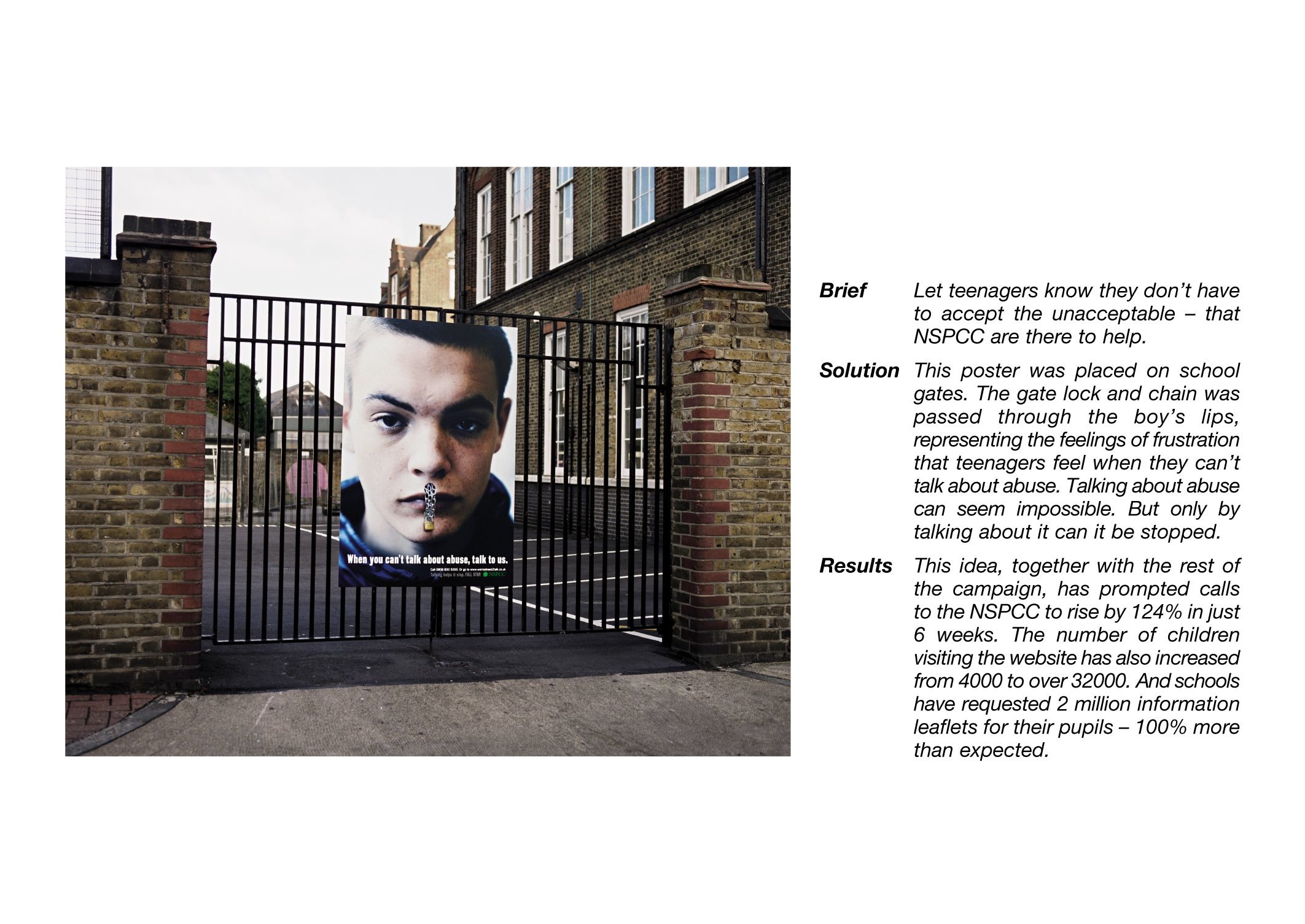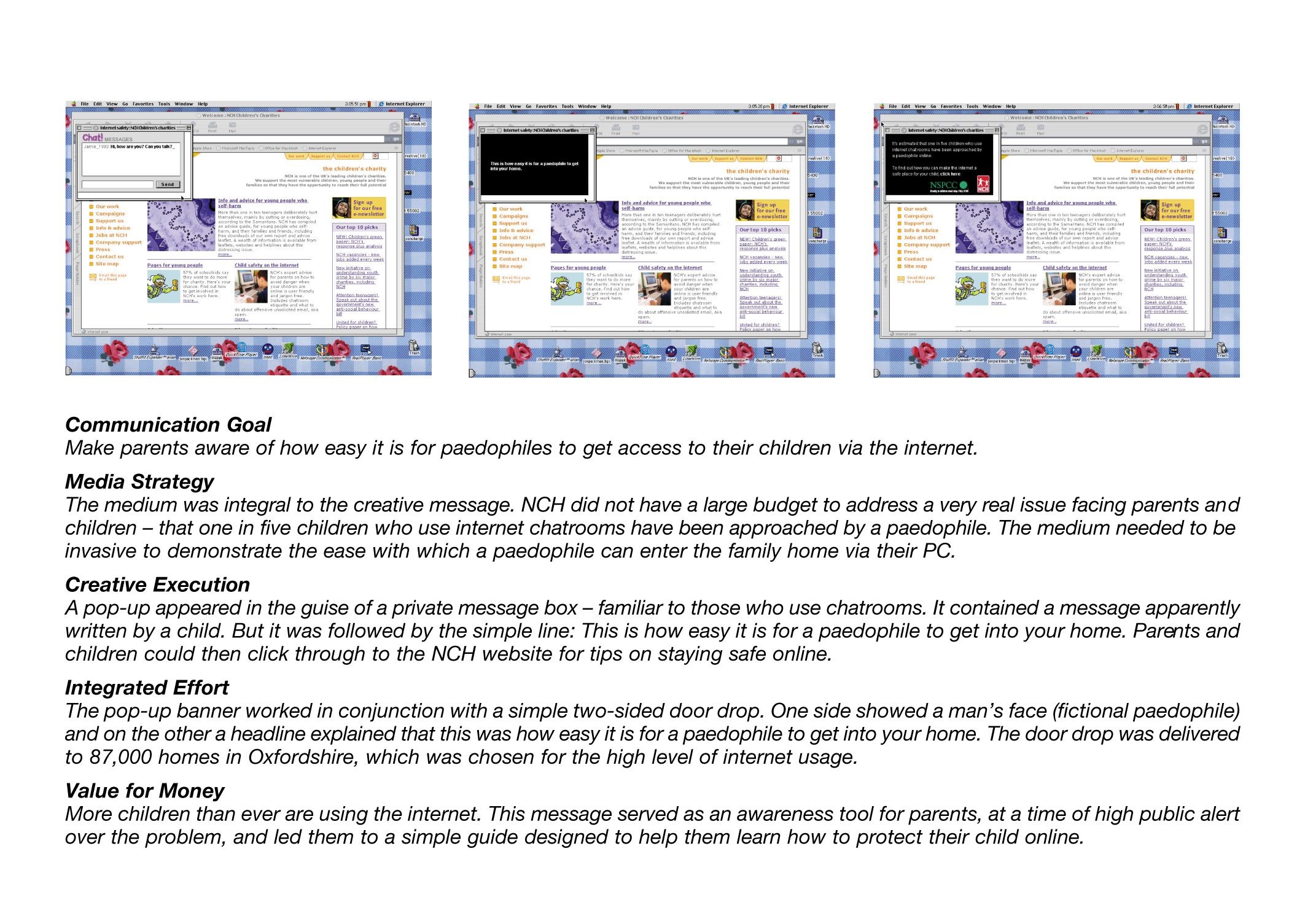Cannes Lions
FLAW IN THE LAW
LEO BURNETT LONDON, London / NSPCC / 2015

Overview
Entries
Credits
Overview
Description
A dangerous loophole in the UK law was allowing predators to send sexual messages to children, without fear of prosecution. Despite the NSPCC bringing this to the attention of the government and the Prime Minister, they refused to recognise the need for a swift change in law.
Our challenge was to reach enough people to achieve a critical mass of support, allowing the issue to be raised in UK Parliament with our budget of just £42,000.
To achieve legislative change we had to appeal to multiple audiences.
Government ministers: their agreement would be crucial to achieving legislative change.
Opposition and backbenchers: their support would enable us to exert consistent parliamentary pressure on the Government.
The media: mainstream support would amplify the issue to a national level.
‘Flaw in the Law’ was brought to life with an engaging film that simplified this complex issue and made clear the need for new legislation. It prompted viewers to sign an online petition where every signature triggered a letter to the Minister from the signatory, demanding that the flaw in the law be addressed.
The campaign was promoted across social media and to NSPCC supporters via e-mails.
The parliamentary engagement afforded by the volume of letters sent allowed the NSPCC to push an amendment to the Serious Crime Bill.
Significant media coverage and PR was also achieved, creating enough hype around the story for it to be picked up in national media.
Execution
‘Flaw in the Law’ was brought to life with an engaging film that simplified the complex issue and made clear the need for new legislation. The film contrasted some of the UK’s more ludicrous laws that exist with this gap in the law.
The film prompted viewers to sign an online petition where they could show support for Flaw in the Law. The campaign’s positive, quirky tone cut through the multitude of petitions people now receive.
Every signature triggered a letter to the Minister from the signatory, demanding that the flaw in the law be addressed.
Our four week campaign caught the UK’s imagination, communicating the urgency for change. It was promoted across social media, including YouTube, Facebook, Twitter, and to NSPCC supporters via e-mails.
The volume of letters sent allowed the NSPCC to work with the opposition and Parliamentary backbenchers to push an amendment to the Serious Crime Bill.
Outcome
With a budget of only £42,000 our challenge was to reach enough people to achieve a critical mass of support.
Over 50,000 people signed our petition and wrote to the Minister for Online Child Protection calling for a new law. And the Government listened.
Within just 6 weeks David Cameron made a complete U-turn, from denying there was a problem to publicly admitting there was a issue with the current legislation.
At a major global summit in December 2014, the Prime Minister announced that the UK would introduce such a law.
The law was passed as part of the Serious Crime Act (2015). It is now a criminal offence for an adult to send a sexual message to a child
Similar Campaigns
12 items







